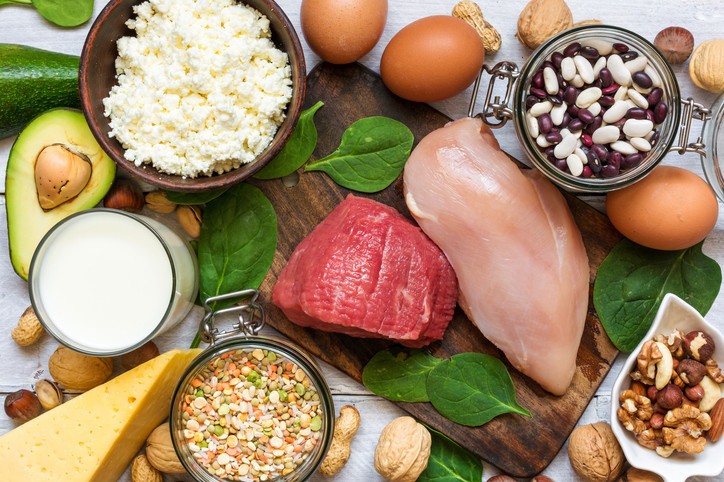Protein is a hot topic in the world of nutrition. From muscle-building shakes to high-protein diets, it seems everyone is talking about how to get more protein. But how much protein should you actually consume each day? And is it possible to have too much? Let’s break down the science and provide some practical guidelines.
Protein is indeed vital, serving as the fundamental building block for all human cells and playing a crucial role in the body’s biochemical processes. It’s especially critical for growth, development, and tissue repair. As one of the three essential macronutrients (along with carbohydrates and fats), protein intake is key for overall health and well-being.
Understanding Your Protein Needs
Determining your ideal daily protein intake can be complex, as recommendations vary depending on factors like age, activity level, and overall health goals. However, understanding the established guidelines is a great place to start.
- General Recommendations: Common recommendations suggest around 56 grams per day for men and 46 grams per day for women. This amount aims to prevent deficiency in the average person.
- Weight-Based RDA: A widely accepted guideline is 0.8 grams of protein per kilogram of body weight. This translates to roughly 51 grams for a 140-pound individual. (To convert pounds to kilograms, divide by 2.2).
- Activity Level: Active individuals, particularly those engaged in strength training or muscle building, often require higher protein intake than sedentary individuals.
- Percentage of Calories: A rough estimate suggests that for active adults, approximately 10% of daily calories should come from protein.
- Protein Quality Over Quantity: Focus on incorporating high-quality protein sources such as lean meats, poultry, fish, eggs, dairy, legumes, and nuts into your diet.
 Assortment of high protein foods, including eggs, chicken, fish, and beans
Assortment of high protein foods, including eggs, chicken, fish, and beans
The Risks of Too Much Protein
While protein is essential, exceeding your body’s needs can lead to potential health concerns.
- Kidney Stones: High-protein diets have been linked to an increased risk of kidney stones in susceptible individuals.
- Increased Risk of Heart Disease & Colon Cancer: High-protein diets that rely heavily on red meat and saturated fats may elevate the risk of heart disease and colon cancer.
- Nutrient Imbalance: Overconsumption of protein can displace other essential nutrients from your diet, like fiber, vitamins, and minerals.
Determining Your Optimal Protein Intake
So, how much protein is too much? It’s challenging to provide a precise answer that applies to everyone, as individual needs vary.
- General Guideline: For most healthy individuals who aren’t elite athletes or heavily involved in bodybuilding, it’s advisable to limit protein intake to no more than 2 grams per kilogram of ideal body weight. For a 140-pound person with a healthy BMI, this translates to about 125 grams per day.
- Individual Factors: Consult with a healthcare professional or registered dietitian to determine the appropriate protein intake based on your unique health status, activity level, and goals.
Tips for a Healthy High-Protein Diet
If you’re aiming to incorporate more protein into your diet, consider these recommendations:
- Consult Your Doctor: Before making significant dietary changes, especially if you have any underlying health conditions like kidney disease, seek guidance from your physician.
- Prioritize Healthy Protein Sources: Emphasize lean protein sources such as low-fat dairy, fish, nuts, beans, lean poultry, and turkey. Limit processed meats and sources high in saturated fats.
- Distribute Protein Throughout the Day: Spread your protein intake evenly across all meals and snacks to optimize muscle protein synthesis and satiety.
- Balance Your Diet: Complement your protein intake with a variety of vegetables, fruits, and fiber-rich foods. Consider following a balanced dietary pattern like the Mediterranean diet or the DASH diet.
Conclusion: Finding Your Protein Sweet Spot
Determining the right amount of protein for your body is a personalized journey. While general guidelines can provide a starting point, individual needs and health conditions play a significant role. By focusing on high-quality protein sources, balancing your diet, and consulting with healthcare professionals, you can optimize your protein intake for overall health and well-being.
Remember, it’s not just about how much protein you consume, but also where it comes from and how it fits into your overall dietary pattern. By adopting a holistic approach to nutrition, you can ensure that you’re getting the right amount of protein to support your individual needs and goals.